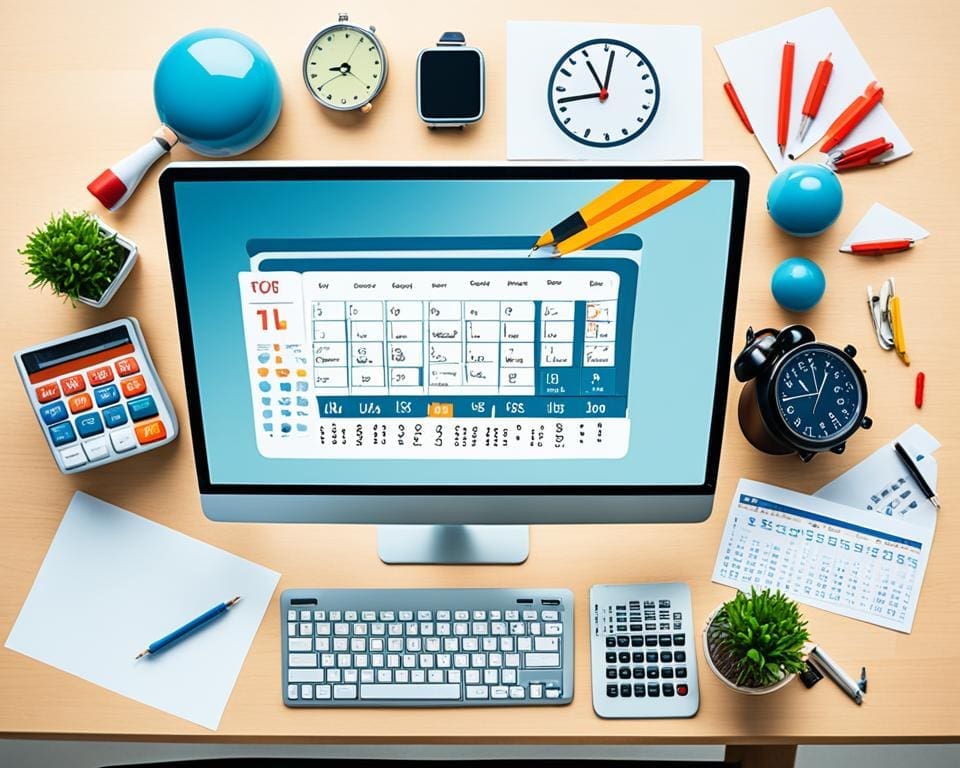Finding the right desktop computer for work is key for better productivity and efficiency today. With so many models out there, picking the right one can seem hard. Your work tasks, like word processing, data analysis, or using graphics, are crucial in deciding.
The market offers a range from small devices like the Apple Mac mini with M2 Pro chip, costing £499, to powerful workstations like the HP Z2 Tower G9, which starts at £1,329.99. Knowing what you need helps you choose wisely. Nowadays, companies want systems that are both customisable and good value, so it’s important to know your must-haves before buying.
Key Factors to Consider When Choosing the Best Desktop Computer for Work
Finding the right desktop computer for work involves considering several factors. These elements are vital to enhance your experience. They ensure you pick a computer that suits your needs.
Understanding Your Work Needs
The first step is to know what tasks you’ll be doing. Think about whether you’ll do basic tasks like web browsing and email, or more intense ones like video editing or 3D rendering. This knowledge will help you choose the right desktop computer. Making a wise choice is crucial for your work’s efficiency and productivity.
Performance Specifications
Performance specs are key for the right work computer. For most tasks, get at least 8 GB of RAM. If your work is more demanding, like gaming or high-power computing, 16 GB of RAM is better. SSDs, with at least 1 TB of space, are preferred for faster access. For graphics, basic users might be ok without a dedicated graphics card. Yet, gamers should aim for DirectX 12 cards with at least 8 GB of memory.
Budget Considerations
Your budget is a big factor in your choice. Computers under £200 fit basic tasks well. For more variety in work, a budget of £250 to £1,000 is good for web and simple software. High-power tasks like video editing may need £1,000 to £2,000. For top performance in graphics-heavy applications, consider over £2,000. Remember to think about future needs to make your investment last.

Choosing the Best Desktop Computer for Work: Desktop Computer Buying Guide
Choosing the right desktop computer means knowing what affects its speed and performance. This guide covers the important bits like processors, graphics, storage, and how they connect. By understanding these, you’ll find it easier to pick one that suits your work.
Processor Types and Performance
The processor is key—it’s the computer’s brain. Intel and AMD lead the market. For example, Intel’s Core i7 series excels in tough tasks. The Dell XPS Desktop (2023) is great for heavy workloads, recommended for workstations. On a budget, the Acer Aspire TC offers good performance without a big price tag.
Graphics Requirements for Various Tasks
For work involving graphics, like design or video editing, the right desktop matters. The Apple iMac 24-inch (M3) and the Alienware Aurora R16 are perfect for these jobs. For gamers who work too, the Lenovo Legion Tower 5i (2023) offers both gaming power and professional capability.
Storage and RAM: Finding the Right Balance
For fast multitasking and accessing data, good storage and RAM are crucial. Aim for at least 16GB RAM and SSD storage. The HP Z2 Tower G9 is designed for business use with these specs. The HP Z2 Mini G9 packs similar power in a smaller size, ideal for tight spaces.
Connectivity Options and Expandability
Finally, think about connective ports and the chance to upgrade later. Desktops should have lots of USB ports, HDMI outputs, and room for more parts. The Dell Inspiron 3020 and Lenovo IdeaCentre Tower offer these features, making future upgrades easy. This ensures your desktop grows with your career.








